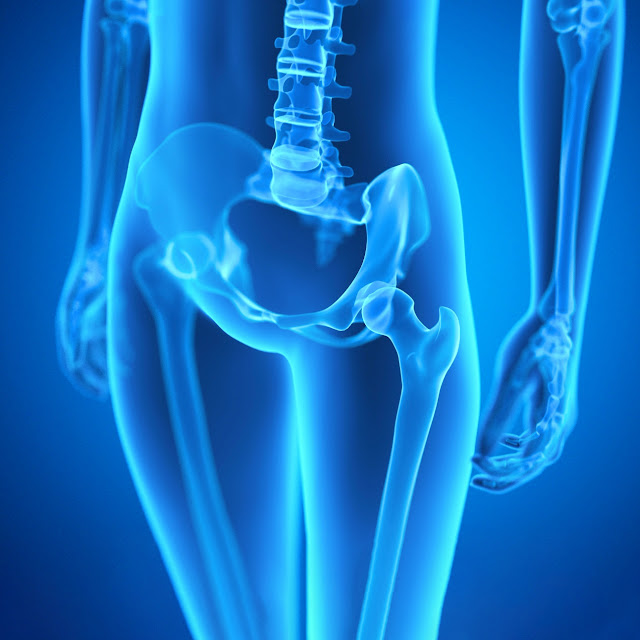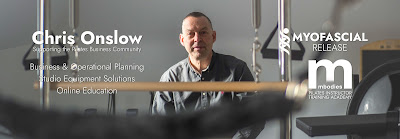Pilates and Women's Pelvic Health Part 1: How can Pilates Teachers help?
The women’s health problem, suffered in silence. How can Pilates Teachers help?
 |
| The Female Pelvis |
In this first of a three-part series, we will discuss the importance of Female Pelvic Health in general and outline how Pilates teachers can play a vital role in helping Women with this health problem, providing expert exercise therapy and a comfortable environment to address the issue more openly. In subsequent parts, we will detail the individual dysfunctions and explore why Pilates is such an ideal form of exercise for the Pelvic floor.
Dysfunctions in women's Pelvic Health are generally both
widespread and underreported. With the
right expertise, qualified Pilates Instructors can offer significant help to women,
not only with the correct therapeutic exercise regimes but with a detailed academic understanding. The client will hopefully then have sufficient knowledge and confidence to seek further support and self help.
Why does Female Pelvic Health matter so significantly?
1. The prevalence of Pelvic Health conditions in women
Pelvic health conditions affect millions of women around the
world with 25% of adult women having one or more pelvic floor disorders
[Dieter, Wilkins & Wu 2015]. For the
specific demography of women attending Pilates classes, it is likely that 20%
of students will have Stress Urinary Incontinence although they may not report
this, or seek help, due to embarrassment or the belief that the symptoms are
normal.
2. Dysfunctions in women's Pelvic Health have a significant impact on quality of life
Discomfort and pain are just two of a wide range of symptoms associated with women's Pelvic Health. Common women's Pelvic dysfunctions include:
STRESS URINARY INCONTINENCE: The complaint of involuntary leakage on effort
or exertion, or on sneezing or coughing.
URGE URINARY INCONTINENCE: The
complaint of involuntary leakage is accompanied by or immediately preceded by
urgency.
PELVIC PAIN: Chronic
pelvic pain refers to persistent, noncyclical pain within the pelvis/associated
structures of >6 months duration.
BOWEL PROBLEMS: Irritable Bowel Syndrome, Haemorrhoids,
Flatulence, Faecal Incontinence, Constipation and others.
PELVIC ORGAN PROLAPSE: The descent of one or more of the Anterior Vaginal Wall, the Posterior Vaginal Wall, and the Apex of the Vagina
(cervix/uterus) or Vault (cuff) after hysterectomy.
PELVIC SURGERIES: and postnatal problems. There are many types of female pelvic
surgeries performed on women of all ages.
Surgeries may influence Pelvic Health and overall health. Major examples are Hysterectomy, Caesarean
Section, and Pelvic Organ Prolapse repair.
MENOPAUSE: A
normal life process when a woman’s ovaries stop producing eggs. Sex hormone
production declines oestrogen, progesterone, and testosterone] and her menstruation has ended. This hormonal change is associated with weakening muscles in the Pelvic region.
Launched in 2021, this 4 module, evidence-based specialism is aimed at
Pilates Instructors and Physiotherapists who work with women.
 |
| Alex Chapman teaching Female Pelvic Health is a Chartered Physiotherapist and Pilates Instructor |
Mbodies educates Pilates instructors to further support women with these widespread issues and therefore encourages more openness and positive action to address these problems:
The qualification is in 4 parts, the overall aims being:
1. Offer an in-depth analysis of key anatomy and physiology coupled with up-to-date research evidence, to increase your understanding and knowledge about common Pelvic Health conditions.
2. Solidify understanding of the importance of the client screening process in relation to Pelvic Health by identifying red flags, understanding contraindicated Pilates exercises and how to modify them, and also when to refer to a medical specialist.
3. Improve practical assessment and Pilates programming for women with Pelvic Health conditions.
4. Provide a toolbox of assessment and exercise strategies immediately applicable to Pelvic Health clients in a class, or one-on-one setting.
5.
Challenge thinking about current Pilates
practice & assist in your professional development as a teacher.
 |
| Alex Chapman checks a client for a Diastasis Recti |
The 4 separate modules, which may be taken as stand-alone
modules or as one complete course, have content as follows:
Module 1: The Pelvic Floor and Core: Foundations in Anatomy and Function
Module 2: Dysfunctions in Pelvic Health: Can PilatesHelp?
Module 3: Diastasis Rectus Abdominis: Core Restorationusing Pilates
Module 4: Functional Pilates Programming for Pelvic Health
This course is for you if:
- You teach Pilates to women!
- You want to broaden your knowledge of Pelvic Health conditions.
- You’re keen to develop your Pilates practice in relation to Pelvic Health.
- You are open to reflecting on, changing, and expanding your own Pilates practice.
- You concur with the importance of considering the latest research findings.
This Mbodies Pilates and Female Pelvic Health course is taught by Alex Chapman:
Alex is a specialist women's health physiotherapist working in the NHS as well as in private practice. She originally qualified as a Chartered Physiotherapist from the University of Birmingham in 2003 and initially worked in the NHS in a variety of Physiotherapy fields including Stroke rehabilitation, Amputees, Orthopaedics, Surgical, and Medical wards, and Intensive Care, before going on to specialise in the Musculoskeletal Outpatient sector.
Over the years, Alexandra has worked in a number of private practices, has become trained in Acupuncture, and has gained a Masters Degree in Manual Therapy from Coventry University, in order to provide advanced management and treatment to those with musculoskeletal disorders. Since then, she has also undergone advanced training for the management of specific Women’s Health conditions and Breast Cancer rehabilitation after surgery. Alexandra has been teaching Clinical Pilates since 2008. She also holds a comprehensive studio certification with Mbodies Training Academy. She has a special interest in the role of ‘The Core’ and how its weakness or altered function can impact on the rest of the body.
For information about Mbodies Training Academy visit: https://www.mbodiesacademy.com/
For Online Pilates Teacher Training and to enrol visit: https://mbodies.thinkific.com/
Author: Chris Onslow - Pilates Consultant
Chris Onslow, has run Pilates focussed businesses since 1998. He and his team specialise in supporting Pilates entrepreneurs and business owners. With a rich history of owning and running successful Pilates studios in the UK, and supporting others in Europe and the Middle East, Chris has broad expertise in maximising profitability and optimising operational efficiency. His agency provides top-tier advice on selecting new, pre-owned, and hireable Pilates equipment from renowned brands such as Align-Pilates, Balanced Body or Stott-Pilates/Merrithew. As the founder of Mbodies Training Academy, Chris continues to revolutionise Pilates education, offering premier online and hybrid CPD and qualification courses for Pilates apparatus instruction and special population CPD. Discover more about how Chris can support your Pilates Business or home exercise choices at www.pilates-consultant.co.uk







Comments
Post a Comment